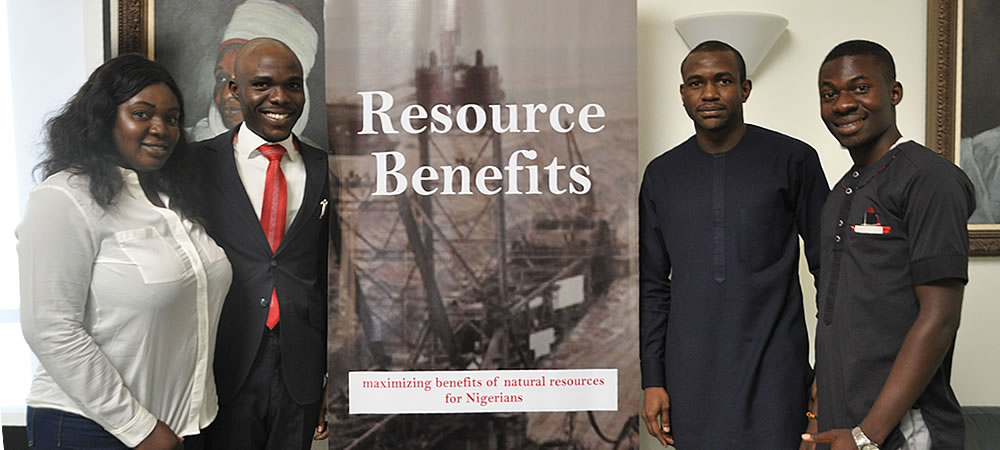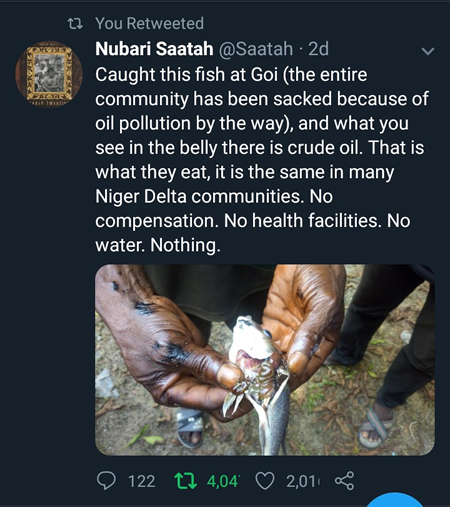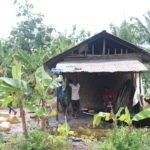The challenges plaguing Nigeria’s extractives industry are enormous and ranges from lack of proper accountability to patronage and weak governance. While focus had been on instituting modern governance especially for the petroleum sector, not much discussion is ongoing as to how previous oil & gas receipts have benefited host communities mostly in the Niger Delta region of the country. These communities continue to suffer dearth of infrastructure necessary to improve their living conditions despite huge payments made by International Oil Companies to government entities particularly Niger Delta Development Commission (NDDC) – a federal government agency established by former president Olusegun Obasanjo in the year 2000 with the sole mandate of developing the oil-rich Niger Delta region.
 Niger Delta which consists of Abia, Akwa Ibom, Bayelsa, Cross River, Delta, Edo, Imo, Ondo and Rivers States occupy about 70,000sq. kilometers and contains several distinct ecological zones, coastal ridge barriers, mangrove swamps, fresh water swamps, forests, and lowland rain forest. Although the region holds majority of Nigeria’s oil and gas deposit which accounts for more than 90% of government revenues, it is paradoxical to see in the region this current level of poverty, due largely to the ecologically unfriendly exploitation of oil and state policies that expropriate the indigenous peoples of the Niger Delta of their rights to these natural resources.
Niger Delta which consists of Abia, Akwa Ibom, Bayelsa, Cross River, Delta, Edo, Imo, Ondo and Rivers States occupy about 70,000sq. kilometers and contains several distinct ecological zones, coastal ridge barriers, mangrove swamps, fresh water swamps, forests, and lowland rain forest. Although the region holds majority of Nigeria’s oil and gas deposit which accounts for more than 90% of government revenues, it is paradoxical to see in the region this current level of poverty, due largely to the ecologically unfriendly exploitation of oil and state policies that expropriate the indigenous peoples of the Niger Delta of their rights to these natural resources.
Several years of oil exploration and exploitation by Multinational Corporations, and the hazards of spillage and gas flaring which accompany it, have degraded the environment of the region and left the communities desolate. Not only have farming and fishing, the major occupations of these mostly riverine minorities been decimated, their territories have continuously lacked basic infrastructure and amenities – electricity, roads, schools, hospitals, potable water, etc.

President Buhari in 2017 ordered audit of 400 Niger Delta projects awarded between 2009 to 2015 by the Ministry of Niger Delta Affairs. While over N450bn had been released for these projects meant for nine oil producing states, performance level only stood at 12%.
The Acting Chairman of Economic and Financial Crimes Commission (EFCC) in June 2018 said “we will visit such projects and ensure their completion. Where money has been taken, we will go after them and recover the money. We will ensure justice is done. We will raise a project monitoring team that will partner with states and civil society organizations in the region to track the award and execution of NDDC projects”
In-depth analysis carried out by our organization – Paradigm Leadership Support Initiative (PLSI) on payments made to NDDC from 2015 to 2017 revealed that an estimated sum of $871.4m (N313.7bn) was paid to the Commission by Chevron, CNOOC Limited, Total, Statoil, Seplat Petroleum, Shell, Eni S.P.A. & Nexen Petroleum. A look into NDDC approved 2017 budget showed that Construction of two sets of Six Classroom Block at a Primary School in Abia State cost N44.8m while Construction of a 15km road network in Bayelsa State had N2bn budgeted for it. Also, in Delta State, Construction of Mother and Child Hospital was projected to cost N750m. What this analysis indicate is how much NDDC could do with payments made to it by International Oil Companies.
Although providing public finance data alone does not automatically improve service delivery, PLSI believe there is a huge potential in making available to citizens information on payment to government entities for natural resources extracted from their communities. This is in expectation that affected citizens will utilize these data to demand accountability which could then catalyze some gradual change toward improving service delivery. PLSI is now utilizing its “Resource Benefits” initiative to provide this critical accountability information to citizens while simultaneously enabling them monitor utilization of the funds. Aside providing fiscal data, Resource Benefits platform also allow citizens to report environmental challenges confronting them due to extractive activities in their communities.

As PLSI continue to deploy this civic tool to test “Resource Benefits” initiative, it behooves on every citizen passionate about development of the Niger Delta region to begin engagement with relevant public institutions particularly NDDC using payment to government data to demand accountability and improved service delivery. PLSI has no doubt on the capacity of PtG data to demystify the opacity that has surrounded NDDC and other entities’ operations for many years as this data becomes more available and accessible to citizens.



